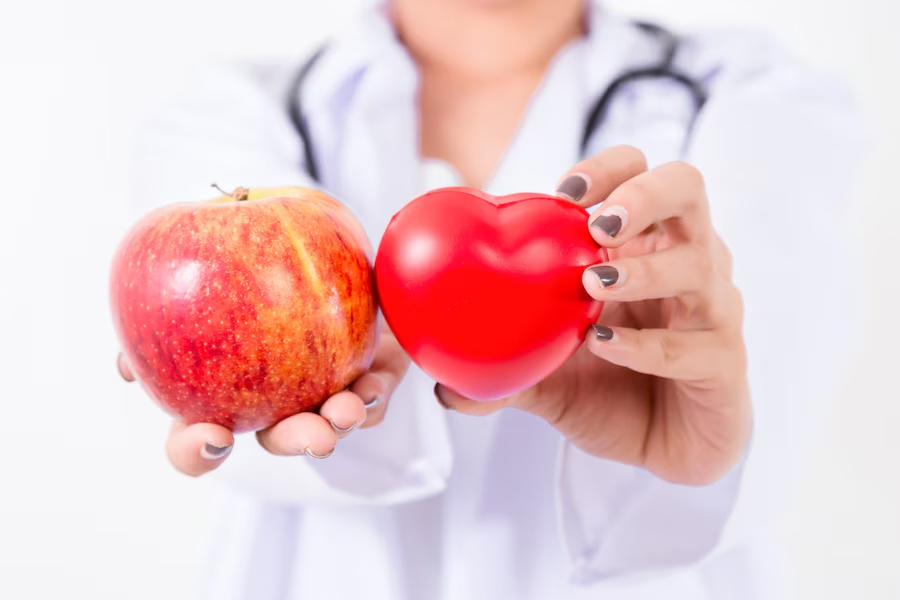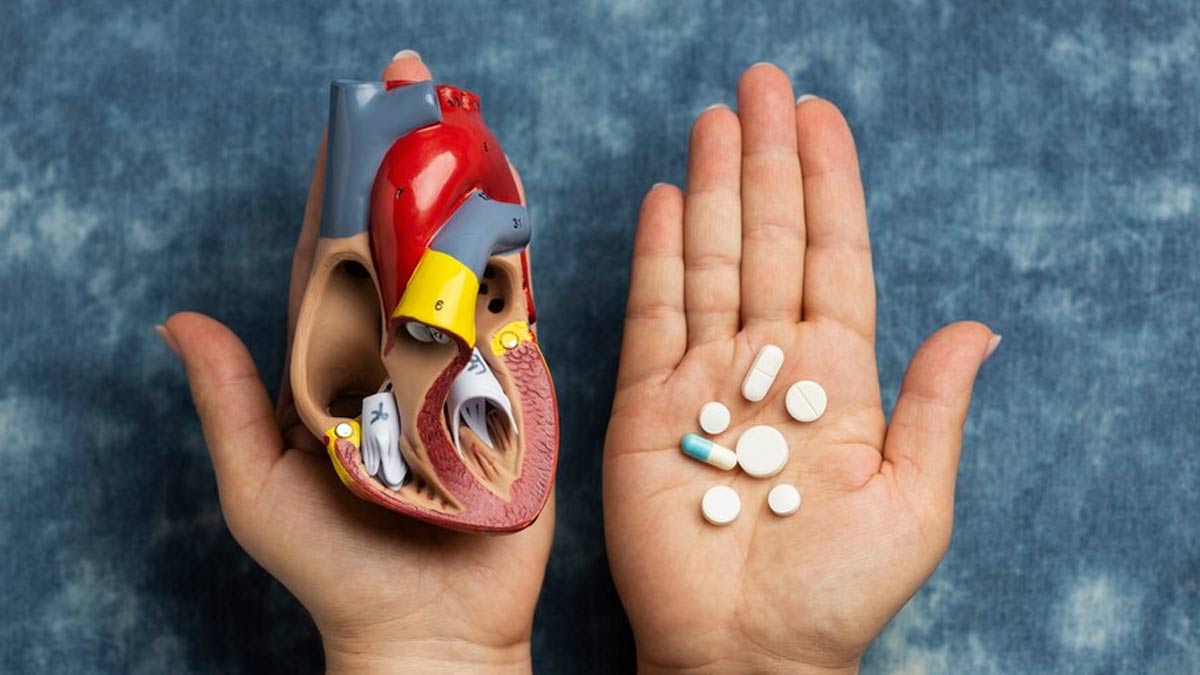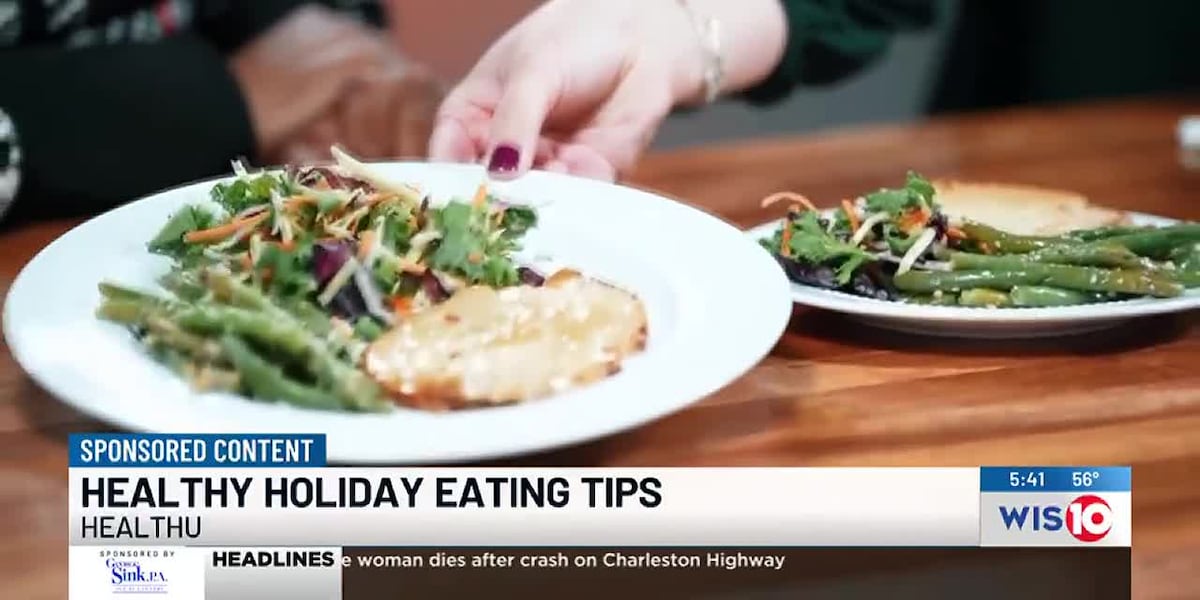Cardiovascular Diseases (CVDs) account for an estimated 1.79 crore deaths annually, with over 80% of these fatalities attributed to heart attacks and strokes, according to the World Health Organization (WHO). High cholesterol is a major risk factor for CVD, as elevated levels can lead to atherosclerosis, a condition in which cholesterol, fat, and other substances accumulate in the artery walls, causing them to harden and restricting blood flow.
While not all cholesterol is harmful, high levels of Low-Density Lipoprotein (LDL), or “bad” cholesterol, can increase the risk of heart disease. In some cases, doctors may prescribe statins, medications that lower cholesterol, to help reduce the risk of heart attacks and strokes. However, statins alone are not enough to achieve positive outcomes. Various lifestyle changes also come into play, some of which are listed below:
Also Read: What Does It Mean To Have A Healthy Heart Rate? Expert Answers
Eat Heart Healthy Diet
Managing cholesterol levels and improving the effectiveness of statin therapy requires making healthy food choices. This includes eating heart-friendly foods and avoiding those that increase the risk of heart disease.
According to the American Heart Association (AHA), a diet high in saturated and trans fats can contribute to high cholesterol, increasing your risk of heart diseases. Saturated fat is found in animal products like fatty meats, cheese, and dairy desserts, as well as tropical oils like palm oil, whereas trans fat can be found in many foods, including baked goods, fried foods, and margarines.
Instead of such unhealthy foods, incorporate foods rich in soluble fibre, such as oats, beans, and fruits, along with foods rich in omega-3 fatty acids, such as fatty fish, flaxseeds, and walnuts, known to lower triglyceride levels, says Dr Sanjay Bhat, Senior Consultant – Interventional Cardiology, Aster CMI Hospital, Bengaluru.
He adds that adopting a Mediterranean-style diet, which emphasises whole grains, healthy fats, and a variety of fruits and vegetables, can provide a comprehensive approach to managing cholesterol levels effectively.
Indulge In Regular Physical Activity

Dr Bhat notes that engaging in physical activity can enhance the overall benefits of statin medications, potentially leading to improved cardiovascular health and better lipid profiles.
Furthermore, certain types of exercises, such as aerobic activities, resistance training, and flexibility exercises, may be particularly beneficial in maximising the therapeutic effects of statins.
In one study published in the American Journal of Physiology-Heart and Circulatory Physiology, researchers found regular aerobic exercise improves how the body processes lipids, enhances HDL function, and supports the removal of cholesterol from cells to the liver for excretion. Aerobic exercise is a physical activity that makes you breathe harder and gets your heart beating faster.
It is essential for individuals on statin therapy to consult with healthcare professionals to develop a tailored exercise regimen that aligns with their health goals and medical conditions.
Say ‘No’ To Alcohol And Smoking
Smoking and alcohol consumption are common risk factors for CVDs, contributing to a major rise in cholesterol levels in the body.
Dr Bhat says, “Smoking has been shown to alter lipid metabolism and may lead to increased levels of LDL cholesterol, potentially counteracting the cholesterol-lowering effects of statins.”
Additionally, excessive alcohol intake can affect liver function, where statins are metabolised, thereby diminishing their therapeutic efficacy and increasing the risk of adverse effects.
Therefore, it is crucial to quit smoking and minimise alcohol consumption.
Also Read: From Heart Health to Cancer Prevention: The Power of Eating 5 Mushrooms Daily, According To A Study
Take Statins As Per Expert Guidelines

Statins are an effective treatment for lowering cholesterol and protecting against stroke and heart attack. However, it should only be taken under expert supervision and guidance.
One of the common mistakes people usually make is starting or stopping the medication as per their own convenience. Once the patient starts feeling better, they decide to stop taking the medication, which, according to Dr Bhat, can be harmful. One must seek medical advice before stopping statins, and people should also note that few conditions require statins even if cholesterol is normal.
Dr Bhat also warns against any side effects from taking statins, which include muscle pain or weakness, which may indicate a rare but serious condition known as rhabdomyolysis. Some individuals may also experience digestive issues, including nausea or constipation, which can affect their overall well-being and adherence to new dietary habits.
During statin therapy, monitoring for liver function abnormalities is also essential, as statins can impact liver enzymes. By being aware of these potential side effects, patients can engage in open discussions with their healthcare providers, ensuring that their lifestyle modifications are both safe and effective while optimising their cholesterol management.



